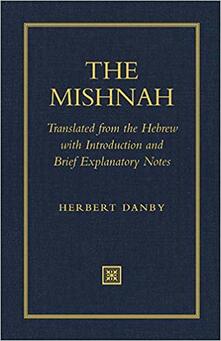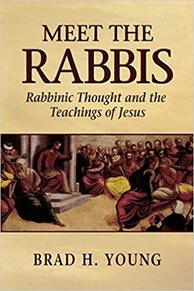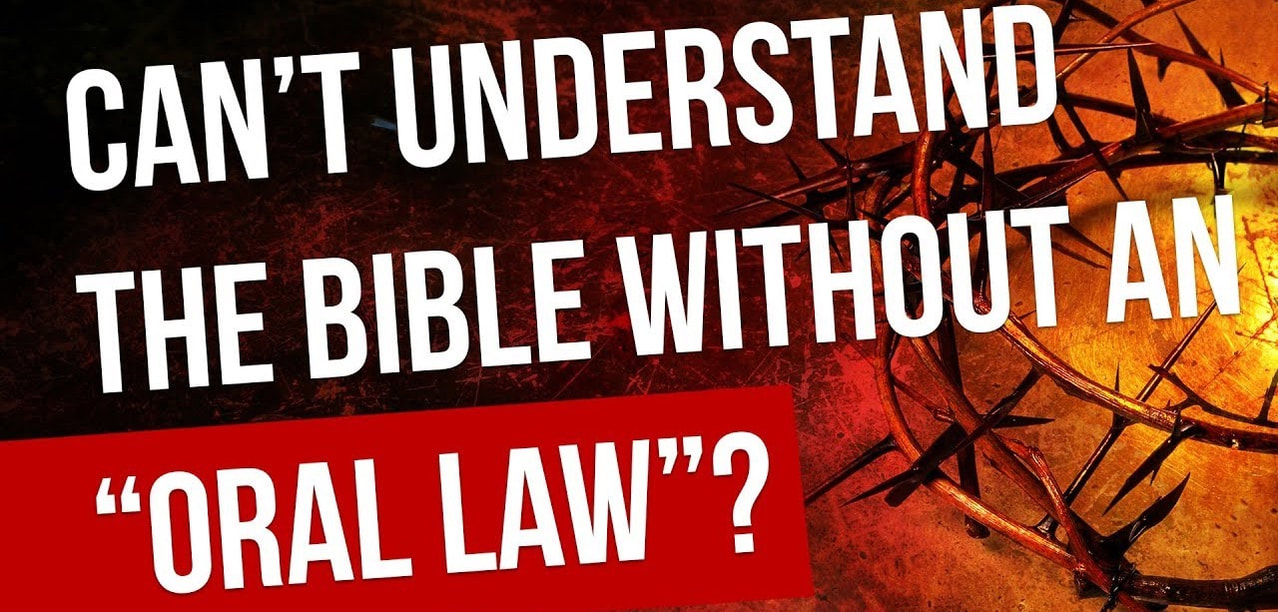
But Jesus isn’t impressed by their social capital. He thinks their enterprise is an epic adventure in missing the point. So he replies in Matthew 15:3, “Why do you break God’s command for your tradition?” Would Jesus say the same thing to you today?
The tradition of Pharisees, Scribes, and “teachers of the Law” (or Rabbis), the frequent foils in a good Gospel story, goes way back.
The Sopherim (or Seferim), or "scribes," began when Ezra the Scribe gathered a group of Levites together to explain the Law. His scribal possy was appointed to “read from the Book of the Law of God and translate and explain it so people understood what was read” (Neh 8:8). These scribes had a noble purpose. They had to explain how older laws applied to people’s contemporary situation. So they added explanatory comments and devised new statutes based on old legal precedents.
When many Jewish priests began to compromise their convictions to preserve power under Greek rule in the 2nd Century B.C., a reactionary group of adherents to the legal tradition of the scribes formed. They were called the Hasidim (i.e., the pious). This conservative group of Jewish religious leaders, committed to directing all parts of life from the Torah, became the Pharisees of Jesus’ day. The name Pharisee likely refers to their “Separatist” or “Purist” position that distinguished them from compromising Jewish leaders. They became the most popular religious leaders among everyday Jewish people.
The Scribes and Pharisees emphasized purity through strict observance of Torah and, more importantly, adherence to the oral tradition that had developed since the time of Ezra. By the mid-first Century AD, the oral tradition began to be recorded in written commentaries on Scripture and in written summaries of legal requirements that “teachers of the Law,” or Rabbis, had deduced from Scripture. Those commentaries were written in Aramaic Targumim and ultimately in the 2nd Century AD Mishnah, a written record of rabbinic teaching. In Jesus’ day, the Scribes, Pharisees, and Rabbis were teaching the people to obey this oral tradition.
We cannot explore the full breadth and depth of the oral tradition in this brief article, but it is instructive to look at one of the most significant and extensive legal teachings that appears on numerous occasions in the Gospels: the prohibitions against “carrying a burden” on the Sabbath. The prohibitions are rooted in the Torah but had expanded greatly by Jesus’ time in first Century Israel.
Deuteronomy 5:12 and Exodus 20:8 introduce the Torah’s basic guideline for the Sabbath: “You shall not do any work.” It seems like a basic command, but what did it mean in its original context? During Israel’s life in the Arabian desert, it meant no gathering sticks, kindling fires, cooking, plowing, or harvesting (Exod 16:23; 34:21; 35:1-3; Num 15:32-36).
By the time of the prophet Amos (around 750 BC), the Sabbath had been established as a day when commercial activities stopped (see Amos 8:5). People knew you should not sell wheat or grain on that day. But that practice did not last long. A few decades later (740-700 BC), Isaiah was rebuking Israel for dishonoring the Sabbath. Making money had become a bigger deal than honoring God’s instructions.
Even after Assyria conquered the northern tribes of Israel, the people of Judah around Jerusalem did not learn. The prophet Jeremiah, whose ministry stretched from 626 BC to 586 BC, confronted disobedient Jews in Jerusalem who were ignoring the “do not work” command on the Sabbath.
This is what the Lord says: Be careful not to carry a load on the Sabbath day or bring it through the gates of Jerusalem. Do not bring a load out of your houses or do any work on the Sabbath, but keep the Sabbath day holy, as I commanded your ancestors. - Jeremiah 17:21–22
When the Jews returned to their land under Persian rule in 535 BC, they had learned some lessons. For example, the archaeological and biblical records demonstrate a massive decrease in idol worship. However, they did not learn their lesson about the Sabbath. As Nehemiah observed:
In those days I saw people in Judah treading winepresses on the Sabbath and bringing in grain and loading it on donkeys, together with wine, grapes, figs and all other kinds of loads. And they were bringing all this into Jerusalem on the Sabbath. Therefore I warned them against selling food on that day. People from Tyre who lived in Jerusalem were bringing in fish and all kinds of merchandise and selling them in Jerusalem on the Sabbath to the people of Judah.I rebuked the nobles of Judah and said to them, “What is this wicked thing you are doing—desecrating the Sabbath day? Didn’t your ancestors do the same things, so that our God brought all kinds of problems on us and on this city? Now you are stirring up more wrath against Israel by desecrating the Sabbath. – Nehemiah 13:15-18

In the middle of the 2ndCentury BC, the Book of Jubilees reiterated and expanded the law to refer to any load that could potentially be carried: “whoever lifts a load to carry it outside his house or tent is to die” (Jubilees 50:8). The stakes were high for carrying anything, regardless of whether you planned to sell it. The Dead Sea Scrolls (Damascus Document 11:7-9; 4Halakha A 1-2) continue this amplification of the law and prohibit carrying anything out of your house. 4QMiscellaneous expressly condemns carrying food or dishwares, which moves from the commercial “load” of Jeremiah to personal items (for a more detailed history of these Sabbath laws, read Alex Jassen’s Tracing the Threads of Jewish Law: The Sabbath Carrying Prohibition from Jeremiah to the Rabbis).
The rabbis of Jesus’ day (the Scribes and “teachers of the Law) continued the trend of adding excessive personal restrictions on the Sabbath. The Mishnah, composed around 200 AD, shows how much had been added in Tractate Shabbat. Rabbis had defined 39 Melakhot, or “labors,” that must be avoided:
The [number of] principal Melakhot is forty minus one: Sowing, plowing, reaping, binding sheaves, threshing, winnowing, sorting, grinding, sifting, kneading, baking, shearing wool, whitening it, combing it, dyeing it, spinning, weaving, making two loops, weaving two threads, separating two threads, tying [a knot], untying [a knot], sewing two stitches, tearing for the purpose of sewing two stitches, hunting a deer, slaughtering it, skinning it, salting it, curing its hide, scraping it, cutting it, writing two letters, erasing for the purpose of writing two letters, building, demolishing, extinguishing a flame, lighting a flame, striking with a hammer, carrying from one domain to another. These are the principal Melakhot - [they number] forty minus one. - Shabbat 7.
If a man takes out half a dry fig into a public place, and puts it down and then takes out another half a dry fig, in one spell of unawareness that it was Sabbath, he is penalized [for breaking the Sabbath], but if under two spells of unawareness, he is not penalised. Rabbi Jose said: If he [takes the two half-figs] in one state of unawareness into the same public place, he is penalised, but if into two different public places, he is not penalised. - Baba Bathra 55b-56

The rabbinic debates that led to these microscopic rules were taking place in Jesus’ day. The Rabbi Eliezer who issued the first opinion in Baba Bathra 55b about carrying two halves of a fig likely lived at the end of the first Century and/or the beginning of the second Century AD. The specific prohibition against harvesting grain in the Mishnahis likely why the Pharisees and Scribes critiqued Jesus for letting his disciples pick grain on the Sabbath to eat (Matthew 15:1-3).
The rules were getting strict, and the Rabbis in Jesus’ day were focused on the details. They were missing the point about resting on the Sabbath so you could worship God and instead were obsessed with particular prohibitions. Measuring what you carried on the Sabbath by the weight of “a dried fig” was more important than what you actually did on that day. And they had developed a very distinct reason for why all the minutiae mattered so much.
Adding extraneous laws to the instructions of Moses and the Prophets became the imperative of Jewish Rabbis. As the Mishnah explains,
“Moses received the Torah from Sinai, and he delivered it to Joshua; and Joshua delivered it to the Elders; and the Elders delivered it to the Prophets; and the Prophets delivered it to the men of the Great Synagogue. These men said three things: ‘Be deliberate in judgment’; ‘Raise up many disciples’; and ‘Make a fence around the Torah’” (Pirque Aboth 1:1).
A lot was at stake. The prophets had explained that Israel lost its independence and prestige because of dishonoring the Sabbath. So the Rabbis believed they could regain their national independence and power if people started following Sabbath laws. As Babli Talmud Shabbat 118b declares, “If Israel were to keep two Sabbaths according to the rules, they would immediately be redeemed.”The Rabbis eventually came to believe they could provoke God to redeem His people through perfect obedience. That’s why the details mattered so much.

Jesus didn’t praise the Scribes and Pharisees for their meticulous rules. He actually attacked them for missing the point. He turned their concern about carrying loads on the Sabbath into a critique of their entire enterprise. As Matthew 23:4 puts it, “They tie up heavy, cumbersome loads and put them on other people’s shoulders.” The Hebrew word for “load” here (Hebrew מַשָּׂא) would be the same word Jeremiah and Nehemiah used to describe the “load” Jewish people shouldn’t carry on the Sabbath. It’s prophetic word play!
The Rabbis of Jesus’ day had built a burden for everyone to bear and attributed it God. They were telling people how far to walk on the Sabbath, when God would and would not accept them at the Temple, where to spit, whether to carry half a fig or a whole fig, when to cover your donkey on the weekend, etc. Jesus saw it for what it was: religious oppression, not an exposition of God’s desires for us. The Scribes and Pharisees might have started with the right intention, but they got lost along the way. They turned a good thing into a bad thing.
Jesus explained the point they missed in his assessment of their tithing habits. “Woe to you, teachers of the law and Pharisees, you hypocrites! You give a tenth of your spices—mint, dill and cumin. But you have neglected the more important matters of the law—justice, mercy and faithfulness. You should have practiced the latter, without neglecting the former. You blind guides! You strain out a gnat but swallow a camel” (Matthew 23:23-24). While focusing on the details, they are ignoring whether their entire system embodies the justice and mercy of God. And Jesus came to correct it.
Jesus’ kingdom does not add more laws but focuses on core values. When he taught us how to honor the Torah, he didn’t build a bigger burden made up of more laws to abide by. He pulled out the two main points that held all the details together: (1) love God and (2) love people. He pushed us toward a discerning center. He wasn’t enamored by comprehensive restrictions on people but rather by our anchored adaptation. Excessive rules annoyed him. He wanted followers centered on justice and mercy who embodied it in ever-changing situations. This kind of virtue demands active engagement, not rote adherence to a long list of spiritual expectations.
Each of us should assess whether we have fallen victim to this misplaced method of faithfulness to God. So ask yourself: Do you have your quiet time consistently every morning for an hour but fail to show compassion to hurting and needy people? Have you made church participation, small group meetings, personal Bible study, fasting, personal worship time, moments of prayer, and your prayer journal the standards of measurement for your Christian life? Consistent religious habits don’t impress Jesus. He doesn’t obsess about thousands of miniscule expectations to oppress you. He keeps it simple. He tells you to “do to others what you want them to do to you.” He tells you to “deny yourself.” You get to discern what that looks like.
That’s why Jesus can say in Matthew 11:28-30, “Come to me, all you who are weary and burdened, and I will give you rest. …my burden is light” (for a full understanding of Jesus' words in Matthew 11:28, read Jesus’ Way Isn’t As Easy As You Think). The Sabbath laws that prevented people from bearing a burden had become the greatest burden of all! You don’t have to bear it. You don’t have to measure yourself against a microscopic mold of religious perfection. Perfect obedience won’t establish God’s kingdom on earth. We can’t be good enough to warrant God’s favor. So relax. Let Jesus give you rest as you become from the inside out whom God has designed you to be.







 RSS Feed
RSS Feed
